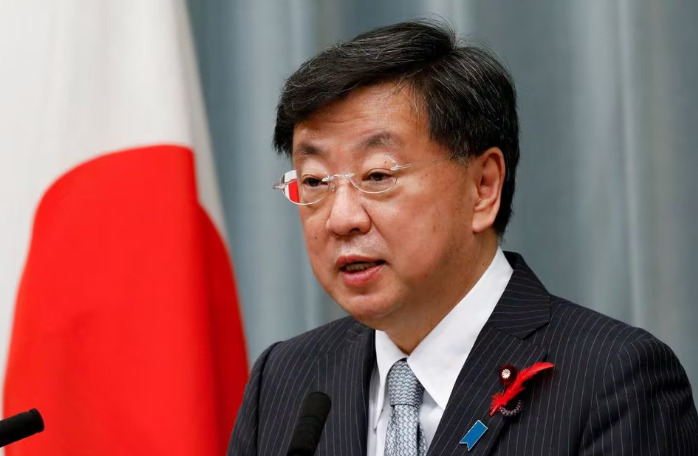Despite rumors that he may be fired in an imminent reshuffle, a senior Japanese minister embroiled in allegations of missing funds survived a vote of no confidence on Tuesday. Japan PM supports under-fire minister amid cabinet shake-up. Fumio Kishida, the troubled premier, wanted his cabinet chief to remain in his position.
The principal opposition party’s motion against Hirokazu Matsuno, a potent figure responsible for coordinating government-wide policy on Kishida’s behalf, was overwhelmingly rejected by 278 members to 166.
Kishida, whose public image has recently plummeted due to allegations that some members of his governing party received unreported funds totaling thousands of dollars, stated that he wanted Matsuno to remain in his position following the vote.
Read more: Xi Jinping Strengthens China-Vietnam Relations Following US Push.
According to local media, Matsuno is one of four cabinet ministers who may be substituted on Wednesday.
On Tuesday, Matsuno expressed his intention to proceed with his responsibilities with “a sense of urgency” and stated that he would “take appropriate action” regarding the allegations.
Media reports indicate that the investigation by Tokyo prosecutors focuses on the largest and most influential Seiwa-kai faction of the LDP, formerly commanded by the late Prime Minister Shinzo Abe and is still commonly known as the Abe faction.
Over five years, they are accused of concealing political funds totaling hundreds of millions of yen through a scheme in which legislators received “kickbacks” from off-the-books ticket sales to party events.
Matsuno and the other ministers named by the media as potentially replaceable are all members of that faction.
However, in an additional potential setback for Kishida, NHK reported on Tuesday that prosecutors were also investigating whether his former faction, which he led until last week, had similarly failed to disclose its fundraising earnings.
Tuesday, when asked about the report, Kishida stated that he had directed personnel to investigate any inconsistencies and implement “suitable measures” as required.
He had previously stated that he was unaware of any bribery occurring within his faction; however, he recanted his statement last week to adopt a more impartial position on the rapidly intensifying scandal.
According to political analysts, this could further erode public support for Kishida’s administration, which has fallen to a record low of approximately 23% recently, the lowest since he took office in late 2021, as indicated by polls.
An NHK survey released on Tuesday revealed that support for Kishida’s ruling Liberal Democratic Party (LDP) had fallen below 30% for the first time since 2012 when the party regained power following a brief resurgence in its near-total post-war political dominance.
At most, Kishida is not obligated to convene elections until October 2025; in the past, a splintered and feeble opposition has encountered considerable difficulty in consistently challenging the LDP’s hegemony.
The LDP is scheduled to conduct leadership elections in September, but analysts say how long Kishida can maintain his position is uncertain.
“Kishida will remain in power for the time being because there are no clear alternatives for the presidency,” said Yu Uchiyama, a political science professor at the University of Tokyo. “However, if a formidable contender emerges, there may be an effort to remove Kishida from office.”

